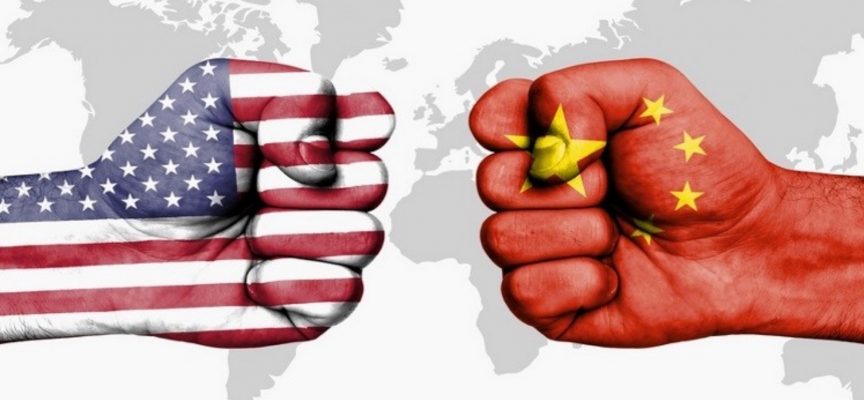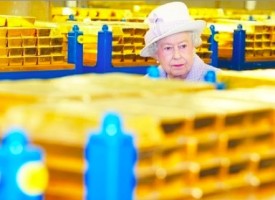The West is already in a financial war against China. Take a look…
CHINA’S NEW ECONOMIC FIGURES SHOW CONTINUED WEAKNESS
June 19 (King World News) – Gerald Celente: In May, China’s manufacturing momentum slowed but retail sales jumped more than 50 percent for the month due to a splurge over the May festival week. The property crisis showed no signs of recovery despite Beijing’s recent attempts to revive it.
After rising 6.7 percent in April, factory output grew by 5.6 percent in May, falling short of analysts’ expectation of a 6-percent gain in a Reuters poll.
Economists had forecast a 3-percent spurt in retail spending from April, but consumers spent 3.7 more instead, largely because of the five-day holiday that began1 May. That pace of increase is unlikely to sustain this month.
“May activity data and our high-frequency trackers for the first half of June suggest significant cross-sector divergences remain in the economy—strong exports and manufacturing activity, relatively stable consumption, and still-depressed property activity,” Goldman Sachs analysts said in a note…
This silver explorer recently did a huge transaction with a $4.5 billion market cap producer CLICK HERE OR ON THE IMAGE BELOW TO LEARN MORE.
Fixed asset investment rose 4 percent this year through May, year over year, also disappointing forecasts of a 4.2-percent increase.
Manufacturing investment over that period shot up 9.6 percent, highlighting China’s emphasis on “new productive forces” of advanced technology and clean energy for export.
However, that ambition will be frustrated in the future by new tariffs and trade barriers that Western nations have imposed on Chinese exports.
Private sector investment also flopped, managing a 0.1-percent expansion in January through May, compared to 0.3-percent in January through April.
While the figure shows weak confidence among private businesses, government investment in the economy spiked by 7.1 percent in the first five months.
“Exports drove industrial growth and manufacturing investment significantly, but real estate weakness still hit household consumption and investment,” ZhaoPeng Xing, ANZ’s senior China strategist, told Reuters.
The property crisis has gone unresolved since September 2021. Beijing’s recent tepid experiments in ending it have done nothing to boost home sales or prices, according to government data.
“The latest figures point to an uneven growth that reinforces calls for more fiscal and monetary policy support,” Reuters said.
China’s growth target of 5 percent this year is a stretch, analysts have said, as long as the property crisis continues, despite the 5.3-percent growth the country reported for this year’s first quarter.
Property investment was down 10.1 percent this year through May, compared to the same period in 2023. The decline was 9.8 percent in January through April, showing the situation worsening as the spring wore on.
The price of new homes edged down 0.7 percent in May from April, the 11th consecutive month of falling prices. The decline in May was the steepest since October 2014, Reuters reported.
In May, the central bank unveiled a pilot project in which commercial banks are lending money to state-owned businesses, which then will use the money to buy unsold houses and convert them to affordable dwellings for low- and modest-income households.
The housing market is “undergoing adjustment” and it will take some time for the pilot program to produce data for officials to analyze, a spokesperson for the National Bureau of Statistics told a press briefing last week.
“Tepid demand at home has kept a lid on consumer prices as confidence remains low in the face of a protracted property sector crisis,” Reuters said. “New bank lending rebounded far less than expected in May and some key money gauges hit record lows.”
TREND FORECAST:
Beijing will do its best to try to export its way to prosperity. But economics and tariffs will not bring it to where it needs to be.
Western nations have sanctioned a range of China’s exports and the trend to reshoring and “friendshoring” supply chains will shrink China’s export markets further. Increased shipments to India, Indonesia, and other Asian partners with growing economies will not offset the loss of Western markets.
As we have long noted, the key to China’s sustained prosperity is a thriving domestic economy—and that will not fully materialize until the housing crisis is resolved and consumer confidence begins to revive… which may take years.
Again, as we have forecast, China, as with Russia, has the human and many of the natural resources to strive to be self-sustaining and self-sufficient.
CHINA SHIFTS BUSINESS INVESTMENT AWAY FROM U.S.
In January and February, for the first time since at least 2003, the U.S. was not the top nation for China’s investment in manufacturing and logistics facilities, according to data service FDN Markets.
During this year’s first two months, Chinese businesses announced plans to locate 41 production and freight-handling projects in Mexico and 39 in Vietnam. One is a $2-billion investment by state-owned electric vehicle (EV) maker SAIC to build a plant in Mexico.
Egypt, Hungary, Malaysia, and Thailand also saw record levels of Chinese investment over the period.
China’s shift away from the U.S. is the result of long-standing geopolitical tensions and the West’s move to redirect supply sources away from China and toward countries closer to the U.S. both geographically and politically.
China Sidestepping Western Financial War
The Western strategy may not be as effective as it was intended to be. “As the U.S. imports more from countries beyond China, Chinese businesses are also boosting exports to these countries,” the Financial Times noted.
China’s shift away from the U.S., where production costs are high and regulations extensive, has been underway for years. From 2017 through 2023, the value of Chinese exports to Mexico and Thailand more than doubled, while overall exports increased just 49 percent, the FT said.
Over the same seven years, China’s exports of computer parts to Vietnam tripled.
Vietnam’s trade surplus with the U.S. has more than tripled in recent years, according to the research and consulting firm Eurasia Group, in part because Chinese companies are shipping goods to the U.S. by routing them through Vietnam to disguise their origins.
“Direct importing [from China] may be down, but one only has to look at indirect routes through which the U.S. continues to be plugged into Chinese supply chains,” Dartmouth College economist Davin Chor said to the FT.
Summit Enterprise, a Chinese toolmaker, is setting up a factory in Vietnam, Audrey Liang, a Summit sales rep, told the FT, even though costs are higher and the workforce less skilled.
Customers had requested a Vietnamese location for “political reasons,” she said. “If customers didn’t have this requirement, we wouldn’t go to Vietnam,” she said.
TRENDPOST:
China has learned to be fluid and opportunistic in its quest to become the world’s largest economy.
It may not reach that goal any time soon, but it already is the world’s most nimble.
A Chinese company can easily set up an arm’s-length division under a different name in a country friendly to the West, hire local workers and executives, and busily trade with Europe and U.S. The profits go to China, just as surely as if the products originated there.
There are advantages to keeping supply lines geographically and politically closer to Western countries. However, that will not stop China from reaping the rewards of the shift. Again, as we have noted; the business of America is war and the business of China is business. Therefore, China will accelerate across the business spectrum as America and its western allies accelerate in war machine production.
West Already Declared Financial War Against China
King World News note: China’s economy has been in serious contraction since the West declared economic war on China. Virtually all US companies, in unison, have left China. This has left China an economic graveyard in many areas that were previously thriving. Many of the high paying jobs in China were from western companies. Now that they have left everything is being repriced, particularly real estate. The real estate collapse has also collapsed many banks in China and incinerated the money that Chinese savers had deposited in those banks.
However, despite its many problems, China has the largest savings rate in the world, and the Chinese consumers never seem to stop pouring into cities like Paris spending money on luxury shopping. I would also add that China, unlike the West, allows its system to be cleansed by allowing banks and companies to fail. Meaning, even though the economy has contracted sharply in many areas, the government does not bail out the banks. They simply let them fail along with other companies. That is how an economy should function. Let the weak businesses fail. The West, in sharp contrast to China, has abandoned Austrian Economics in favor of endless money printing. That will end in tears.
Released!
Alasdair Macleod discusses collapsing Open Interest in the gold market as well as some other wild developments from around the world CLICK HERE OR ON THE IMAGE BELOW TO LISTEN.
© 2024 by King World News®. All Rights Reserved. This material may not be published, broadcast, rewritten, or redistributed. However, linking directly to the articles is permitted and encouraged.









